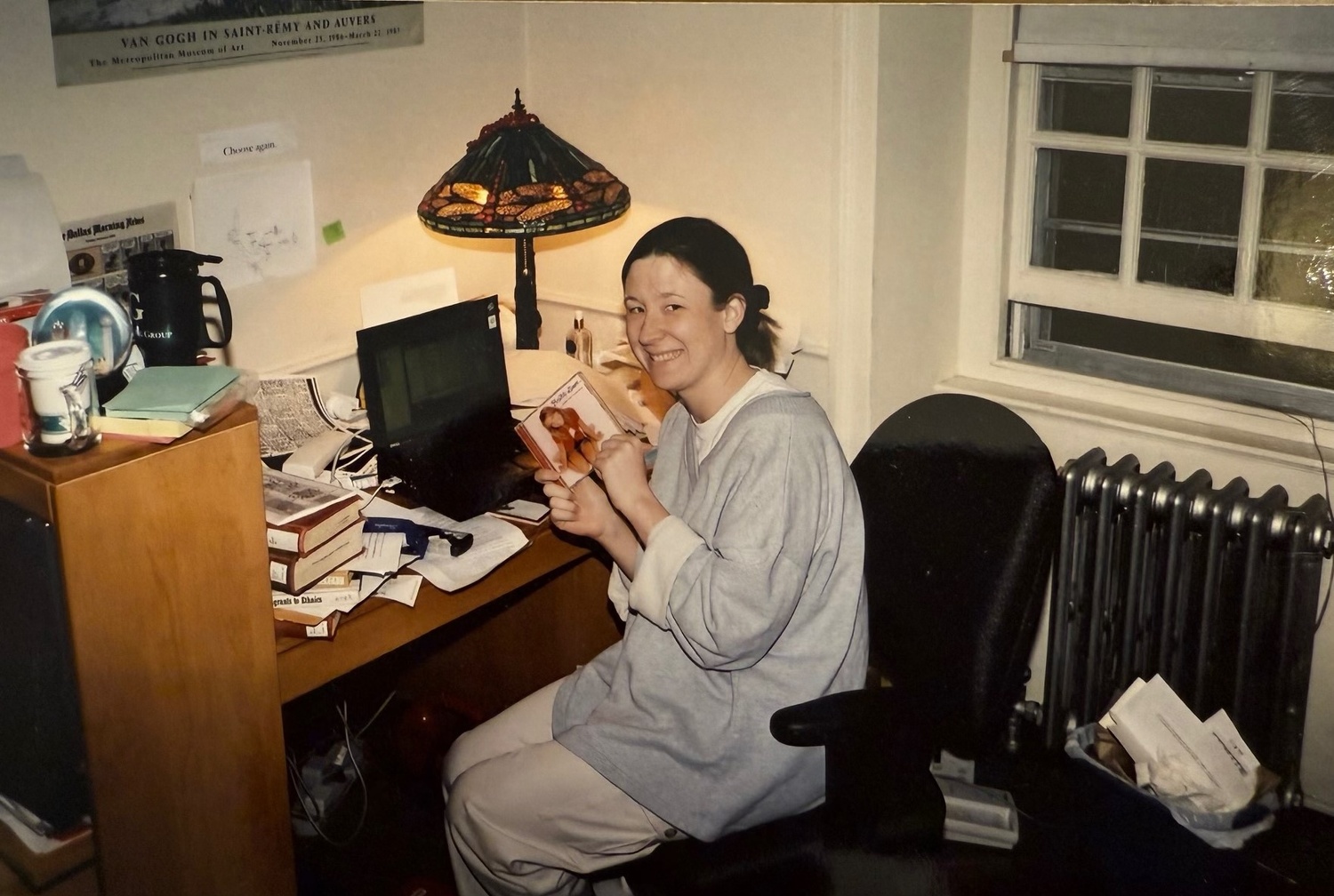
News
Summers Will Not Finish Semester of Teaching as Harvard Investigates Epstein Ties

News
Harvard College Students Report Favoring Divestment from Israel in HUA Survey

News
‘He Should Resign’: Harvard Undergrads Take Hard Line Against Summers Over Epstein Scandal

News
Harvard To Launch New Investigation Into Epstein’s Ties to Summers, Other University Affiliates

News
Harvard Students To Vote on Divestment From Israel in Inaugural HUA Election Survey
Napster Sparks Debate About Music Piracy at Harvard

When Napster was founded in May 1999, students across the country jumped at the opportunity to download their favorite music without the hassle of buying a new CD.
“At the time, there was no music streaming, so a lot of people were streaming downloaded music that they already owned, so that they could have more easy access to it,” M. Ari Behar ’02 said. “And of course, some people were doing it for songs that they didn’t own.”
“Napster was the big one,” added Behar, who wrote about the platform for The Crimson in 2000.
But for universities, the novel technology posed a new problem: legal threats from the music industry.
Metallica and rap star Dr. Dre filed a lawsuit against Napster in early 2000 for copyright infringement, citing Indiana University, the University of Southern California, and Yale University — among others — as defendants for allowing their students to use Napster on university networks. Those three universities quickly moved to block Napster access, ultimately evading a lawsuit.
But Harvard’s administrators chose a different approach — quietly issuing warnings without banning the service.
Attorney representing Metallica and Dr Dre sent letters to universities, including Harvard, requesting they block access to Napster on campus networks. But Harvard declined the request – refusing to be the middleman between its students and the service.
Jonathan L. Zittrain, who was the executive director of Harvard Law School’s Berkman Center for Internet and Society at the time, viewed Harvard’s response as “pretty scaled to the situation.”
“The University made a pretty big show of responding to pressure from Metallica and Dr. Dre and the recording industry to say we are not going to start monitoring or changing traffic on our network. That’s not what the internet’s about,” Zittrain said.
Despite denying the request, Harvard’s Faculty of Arts and Sciences made it clear to students that if they chose to use Napster they could face consequences, saying it would limit outbound traffic on Napster in order to manage congestion on Harvard’s network.
House tutors encouraged students to stop using Napster, and passed along warning letters from the Recording Industry Association of America to students whom the industry group had identified as Napster users.
“They were both trying to maintain that the network is for the students and not for outsiders to say how it’s going to be used, and at the same time trying to bend but not break,” Zittrain said.
He said that the RIAA letters, in particular, placed the University in a difficult situation as recording services began suing their own listeners for, allegedly, downloading songs illegally.
“That was a prelude of hoping that University disciplinary processes could work short of lawsuits, and then ultimately lawsuits against end users, and the University was kind of caught in the middle,” Zittrain said.
Josh Banerjee ’00 said that despite the warnings passed along by Harvard, many students still chose to use Napster.
“I mean, it’s great you have access to music that you otherwise wouldn’t have access to readily,” Banerjee said.
Though he didn’t recall personally using the service, Banerjee said students enjoyed being able to share music fast — but many felt ambivalent about the service, privately considering it a form of piracy.
For others, the benefits of Napster outweighed the legal risks. Lorrayne S. Ward ’03 said she continued to use Napster after the warnings, because it “enabled people to expand their musical horizons.”
“The democratization of musical access that Napster was really on the forefront of — although illegally, obviously — really did help to change the way people consumed music,” Ward added.
Banerjee said he recalled that the administration stepped away from regulating Napster’s use, leaving the dispute between the company and the students.
“I think the understood message was, like, ‘if you’re going to engage in piracy, that’s between you and the people you’re pirating from,’” he said.
Ward said that while Harvard students took note of other universities’ decision to ban Napster, she and her classmates were generally satisfied by the University’s response.
“I think there was general happiness that Harvard wasn’t following suit,” she said.
Zittrain said that as the controversy proliferated across the nation, neither universities nor Napster ever secured a clear victory, and other platforms — like iTunes and Spotify — made the debate obsolete.
“There wasn’t a truce declared, or there wasn’t a clear victor — the world moved on,” he added.
—Staff writer Claire A. Michal can be reached at claire.michal@thecrimson.com.
—Staff writer Thamini Vijeyasingam can be reached at thamini.vijeyasingam@thecrimson.com. Follow her on X @vijeyasingam.
Want to keep up with breaking news? Subscribe to our email newsletter.
